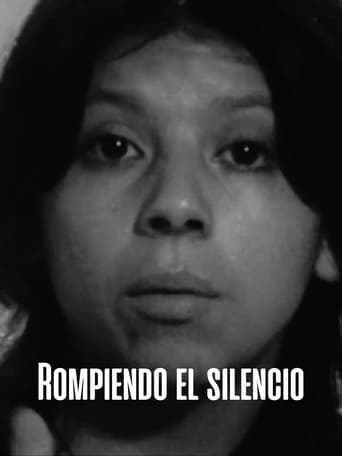Breaking the Silence
This heterodox work draws on fiction resources and the register of documentary to denounce the phenomenon of rape in Mexico. With a complex essay-like structure, the film is a reflection on the various types of sexual violence, from the classist legal apparatus and the connivance of religious institutions, to rejection of and discrimination against victims. At the same time, it introduces community alternatives for victim support. A project by “Cine Mujer,” this film exemplifies the group’s motto and mode of production, and thus one of the maxims of feminism: no personal solutions; only collective action for collective solutions. This heterodox work draws on fiction resources and the register of documentary to denounce the phenomenon of rape in Mexico. With a complex essay-like structure, the film is a reflection on the various types of sexual violence, from the classist legal apparatus and the connivance of religious institutions, to rejection of and discrimination against victims. At the same time, it introduces community alternatives for victim support. A project by “Cine Mujer,” this film exemplifies the group’s motto and mode of production, and thus one of the maxims of feminism: no personal solutions; only collective action for collective solutions. This heterodox work draws on fiction resources and the register of documentary to denounce the phenomenon of rape in Mexico. With a complex essay-like structure, the film is a reflection on the various types of sexual violence, from the classist legal apparatus and the connivance of religious institutions, to rejection of and discrimination against victims. At the same time, it introduces community alternatives for victim support. A project by “Cine Mujer,” this film exemplifies the group’s motto and mode of production, and thus one of the maxims of feminism: no personal solutions; only collective action for collective solutions. This heterodox work draws on fiction resources and the register of documentary to denounce the phenomenon of rape in Mexico. With a complex essay-like structure, the film is a reflection on the various types of sexual violence, from the classist legal apparatus and the connivance of religious institutions, to rejection of and discrimination against victims. At the same time, it introduces community alternatives for victim support. A project by “Cine Mujer,” this film exemplifies the group’s motto and mode of production, and thus one of the maxims of feminism: no personal solutions; only collective action for collective solutions.



 AD
AD